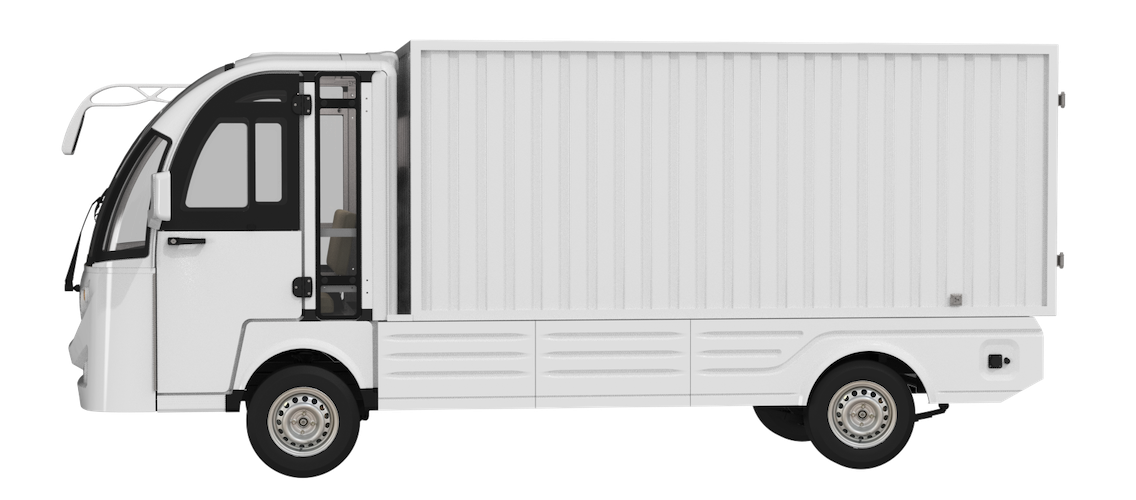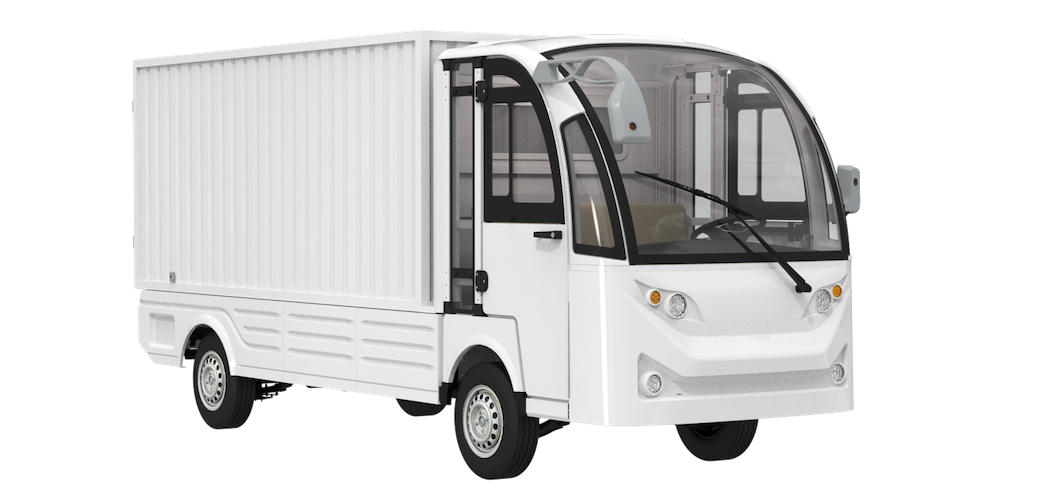Content Menu
● The Rise of Electric Cargo Vehicles in the UAE
>> Sustainable Transport Revolution
>> Government Incentives and Infrastructure
● Key Benefits of Electric Cargo Vehicles
● Leading Electric Cargo Vehicle Manufacturers and Suppliers in UAE
>> Al Naboodah Group Enterprises
>> Al Futtaim Automotive
>> GreenPower Electric Vehicles
>> EV Lab
>> Emirates Transport
● Market Trends and Opportunities
>> Growing Demand for Last-Mile Delivery
>> Technological Advancements
>> Partnerships and Collaborations
>> Expansion into New Sectors
● Choosing the Right Electric Cargo Vehicle Supplier
>> Assessing Business Needs
>> Evaluating Supplier Credentials
>> Trial and Demonstration
● Conclusion
● FAQ
>> 1. What are the main advantages of using electric cargo vehicles in the UAE?
>> 2. How do I choose the right electric cargo vehicle manufacturer or supplier?
>> 3. Are electric cargo vehicles suitable for last-mile delivery in the UAE?
>> 4. What OEM services are available for electric cargo vehicles?
>> 5. What is the outlook for electric cargo vehicles in the UAE?
The United Arab Emirates (UAE) stands at the forefront of innovation and sustainability in the Middle East, rapidly adopting electric vehicles (EVs) to meet the demands of a modern, eco-friendly economy. Among these, electric cargo vehicles have gained significant traction, offering efficient, emission-free solutions for logistics, urban delivery, and industrial applications. This comprehensive guide explores the top electric cargo vehicle manufacturers and suppliers in the UAE, highlighting their offerings, advantages, and the growing market trends. Whether you are a business owner, a fleet manager, or an industry enthusiast, this article provides valuable insights into the dynamic landscape of electric cargo vehicle manufacturers and suppliers in the UAE.

The Rise of Electric Cargo Vehicles in the UAE
Sustainable Transport Revolution
The UAE government has implemented ambitious initiatives to promote green mobility, aiming to reduce carbon emissions and foster a cleaner environment. Electric cargo vehicles play a pivotal role in this transformation, serving various sectors such as logistics, hospitality, municipal services, and last-mile delivery. The country's commitment to sustainability is reflected in its Vision 2021 and the UAE Energy Strategy 2050, which emphasize clean energy and reduced reliance on fossil fuels. These strategic goals have accelerated the adoption of electric cargo vehicles, making them an integral part of the UAE's transportation ecosystem.
Government Incentives and Infrastructure
The UAE offers incentives for electric vehicle adoption, including reduced registration fees, exemptions from tolls, and access to dedicated charging stations. The government has also invested heavily in expanding the electric vehicle charging infrastructure across major cities like Dubai and Abu Dhabi. This infrastructure development is crucial for the widespread acceptance of electric cargo vehicles, as it alleviates range anxiety and supports fleet operations. Additionally, free parking for electric vehicles in certain zones and priority lanes for EVs further encourage businesses to switch to electric cargo vehicles.
Key Benefits of Electric Cargo Vehicles
Electric cargo vehicles offer numerous advantages that make them highly attractive to businesses operating in the UAE's fast-paced and environmentally conscious market.
- Zero Emissions: Electric cargo vehicles produce no tailpipe emissions, contributing to improved air quality and helping businesses comply with increasingly strict environmental regulations. This is especially important in urban areas where pollution control is a priority.
- Lower Operating Costs: The cost of electricity for charging is significantly less than diesel or petrol fuel, and electric vehicles have fewer moving parts, which reduces maintenance expenses. This translates into lower total cost of ownership over the vehicle's lifespan.
- Quiet Operation: Electric motors operate silently, reducing noise pollution in densely populated areas. This is beneficial for delivery vehicles operating during early morning or late-night hours.
- Enhanced Efficiency: Electric cargo vehicles provide instant torque, which improves acceleration and load handling. Regenerative braking systems recover energy during deceleration, extending driving range.
- Brand Image: Adopting electric cargo vehicles signals a company's commitment to sustainability and innovation, which can enhance its reputation among customers, partners, and regulators.
Leading Electric Cargo Vehicle Manufacturers and Suppliers in UAE
Al Naboodah Group Enterprises
Al Naboodah Group Enterprises is a leading conglomerate in the UAE, offering a wide array of electric vehicles, including cargo vans, utility vehicles, and industrial transporters. Their electric cargo vans are designed for urban delivery, providing compact dimensions and efficient battery systems tailored for city logistics. The group also manufactures customizable electric carts widely used in hospitality venues, airports, and large industrial complexes. Al Naboodah's OEM services allow clients to specify payload capacities, battery sizes, and vehicle configurations, ensuring that the electric cargo vehicles meet precise operational needs.
Al Futtaim Automotive
Al Futtaim Automotive is a renowned name in the UAE automotive sector, with a dedicated division for electric vehicles and sustainable transport solutions. Their product lineup includes electric delivery vans and compact electric trucks optimized for last-mile logistics. Al Futtaim emphasizes fleet management solutions, offering integration with telematics and route optimization software to maximize efficiency. Their OEM services extend to vehicle branding, interior customization, and specialized equipment installation, making them a preferred partner for logistics companies seeking tailored electric cargo vehicles.
GreenPower Electric Vehicles
GreenPower specializes in electric commercial vehicles, focusing on innovation and reliability for cargo and passenger transport. Their electric cargo trucks range from light-duty models suitable for urban deliveries to heavy-duty vans capable of handling larger loads. GreenPower's vehicles are known for their robust battery technology and modular design, allowing businesses to upgrade or modify vehicles as their needs evolve. Their OEM collaborations include customizing vehicle dimensions, payload configurations, and energy management systems, ensuring that electric cargo vehicles deliver optimal performance in diverse environments.
EV Lab
EV Lab is a UAE-based startup dedicated to advancing electric mobility, offering a curated selection of electric cargo vehicles sourced from global manufacturers. Their portfolio includes electric cargo bikes and trikes, which are ideal for congested urban centers, as well as light-duty electric vans designed for small and medium enterprises. EV Lab's strength lies in their ability to customize imported electric cargo vehicles to comply with UAE regulations and local market requirements. They also provide after-sales support and training, helping businesses transition smoothly to electric fleets.
Emirates Transport
Emirates Transport is a government-owned entity pioneering sustainable transport solutions across the UAE. They offer a diverse fleet of electric logistics vans, cargo shuttles for industrial parks, and utility vehicles for municipal services. Emirates Transport focuses on large-scale fleet deployments, providing comprehensive packages that include vehicle customization, maintenance contracts, and telematics integration. Their electric cargo vehicles are designed to meet the stringent demands of government and private sector clients, ensuring reliability and operational excellence.

Market Trends and Opportunities
Growing Demand for Last-Mile Delivery
The surge in e-commerce and online retail has intensified the need for efficient last-mile delivery solutions. Electric cargo vehicle manufacturers and suppliers are responding with compact, agile vehicles designed for urban environments. These vehicles reduce traffic congestion and pollution while providing flexible delivery options for businesses ranging from food delivery to parcel services.
Technological Advancements
Innovations in battery technology, such as solid-state batteries and fast-charging capabilities, have significantly improved the range and charging times of electric cargo vehicles. Manufacturers in the UAE are integrating smart features such as GPS tracking, remote diagnostics, and energy management systems to optimize fleet performance. These technologies enable predictive maintenance, reduce downtime, and enhance route planning, making electric cargo vehicles more attractive to fleet operators.
Partnerships and Collaborations
UAE-based electric cargo vehicle manufacturers and suppliers often collaborate with international brands to expand their product portfolios and leverage global expertise. These partnerships facilitate the transfer of advanced technologies and best practices, resulting in a broader selection of vehicles and enhanced service offerings for local businesses. Joint ventures and technology-sharing agreements also help accelerate innovation and market penetration.
Expansion into New Sectors
Beyond logistics and delivery, electric cargo vehicles are increasingly used in sectors such as agriculture, construction, and tourism. For example, electric utility vehicles are deployed in large resorts and golf courses for maintenance and guest services. In industrial zones, electric cargo trucks are used for intra-facility transport, reducing emissions and noise pollution. This diversification presents new opportunities for manufacturers and suppliers to tailor their products for niche applications.
Choosing the Right Electric Cargo Vehicle Supplier
Assessing Business Needs
Selecting the right electric cargo vehicle manufacturer and supplier begins with a clear understanding of your business requirements:
- Payload Capacity: Analyze the weight and volume of goods typically transported to choose vehicles with appropriate load capabilities.
- Range and Charging: Consider daily mileage and the availability of charging infrastructure to ensure operational continuity.
- Customization: Look for suppliers offering OEM services to tailor vehicles with specific features, branding, or equipment.
- After-Sales Support: Reliable maintenance, spare parts availability, and technical assistance are critical for minimizing downtime.
Evaluating Supplier Credentials
- Experience: Established manufacturers with a proven track record are more likely to deliver reliable products and services.
- Certifications: Confirm that vehicles comply with UAE regulations and international safety and quality standards.
- Customer Reviews: Seek feedback from other businesses to assess supplier reliability, responsiveness, and product performance.
- Financial Stability: Partnering with financially sound suppliers ensures long-term support and availability of parts.
Trial and Demonstration
Many suppliers offer test drives or pilot programs, allowing businesses to evaluate electric cargo vehicles in real-world conditions. This hands-on experience helps identify the best fit for operational needs and build confidence in the technology.
Conclusion
The UAE's commitment to sustainability and innovation has positioned it as a hub for electric cargo vehicle manufacturers and suppliers. Businesses across logistics, hospitality, municipal services, and various industrial sectors are embracing electric cargo vehicles for their efficiency, cost savings, and environmental benefits. With a wide array of manufacturers and suppliers offering customizable solutions, the UAE market provides ample opportunities for businesses to upgrade their fleets and stay ahead in the green mobility revolution. As technology evolves and infrastructure expands, electric cargo vehicles will continue to play a vital role in shaping the future of transportation in the UAE, supporting the country's vision for a cleaner, smarter, and more sustainable economy.

FAQ
1. What are the main advantages of using electric cargo vehicles in the UAE?
Electric cargo vehicles offer zero emissions, lower operating costs, quiet operation, and enhanced efficiency, making them ideal for urban and industrial applications. They also help businesses comply with environmental regulations and improve brand reputation.
2. How do I choose the right electric cargo vehicle manufacturer or supplier?
Consider factors such as product range, customization options, after-sales support, supplier experience, certifications, and customer feedback. Trial programs or demonstrations can also help in making an informed decision.
3. Are electric cargo vehicles suitable for last-mile delivery in the UAE?
Yes, many electric cargo vehicle manufacturers and suppliers offer compact models specifically designed for last-mile delivery, ensuring agility and efficiency in urban environments with heavy traffic and limited parking.
4. What OEM services are available for electric cargo vehicles?
OEM services include vehicle customization, branding, payload adjustments, specialized equipment installation, and integration of smart technologies such as telematics and fleet management systems.
5. What is the outlook for electric cargo vehicles in the UAE?
The market is expected to grow rapidly, driven by government incentives, technological advancements, increasing demand for sustainable transport solutions, and expanding charging infrastructure.



















































